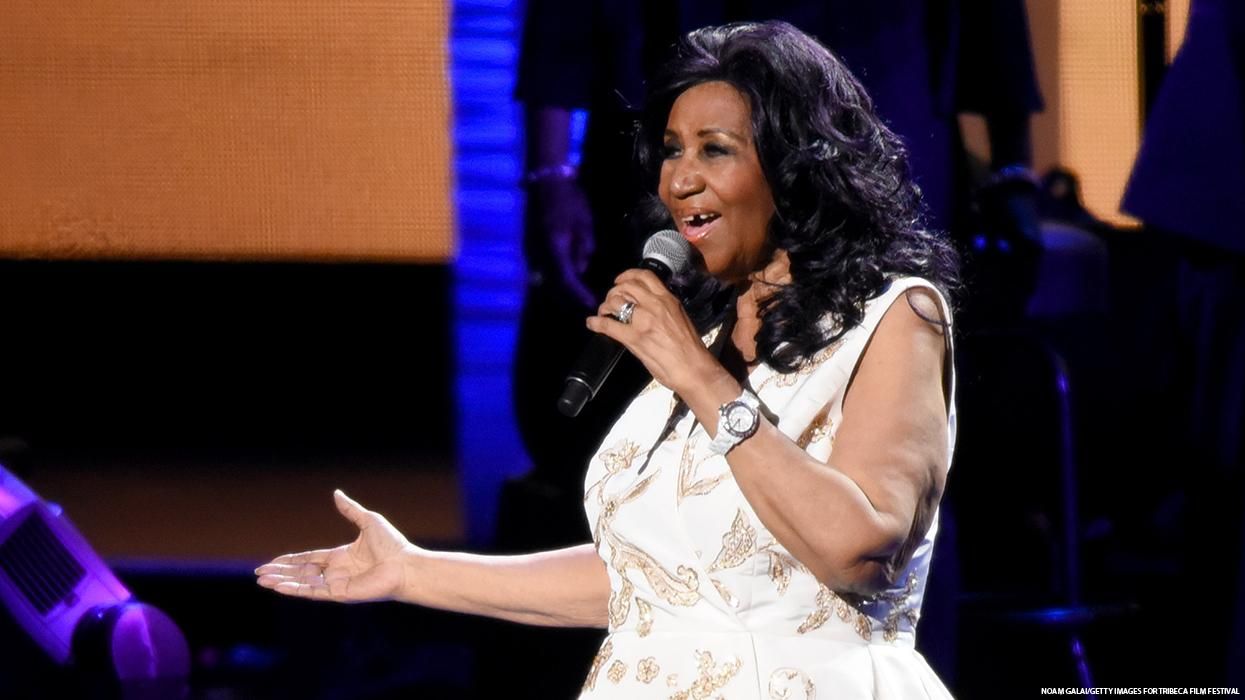Recently obtained files from the FBI reveal the government agency tracked prominent singer and civil rights activist Aretha Franklin for 40 years.
The 207 page document compiled by Rolling Stone was first requested in August via the Freedom of Information Act, though remains heavily redacted, which indicates the FBI may possess additional records. The materials express suspicion about the singer, as well as the other entertainers and activists she engaged with.
For nearly 40 years, the FBI attempted to connect Franklin to "Black extremist" and "pro-communist" groups. Her work with prominent civil rights leaders such as Martin Luther King Jr. and Angela Davis prompted the bureau to track her addresses, phone numbers, and movements from 1967 until as recently as 2007.
“I’m not really sure if my mother was aware that she was being targeted by the FBI and followed," Kecalf Franklin, Aretha Franklin’s son, told Rolling Stone. "I do know that she had absolutely nothing to hide though."
A 1968 file grouped Franklin with other Black musicians such as Sammy Davis Jr. for supporting "the militant Black power concept." The FBI warned against their performing at King's funeral, as it "would provide emotional spark which could ignite racial disturbance in this area."
Another document from 1968 highlights a riot that was instigated at the Red Rocks Amphitheater in Denver, Colorado after Franklin canceled a performance. The FBI acknowledged that Franklin refused to perform because she had not been paid, writing that the “disturbance began about 9 pm after Miss Franklin refused to perform because her fee, guaranteed by the promoter, was not forthcoming.” Despite this, the file was still labelled "Possible Racial Violence."
By 1971, Franklin's every move was tracked by the FBI. The agency even possessed a copy of her recording contract "just in case." In 1972, they placed a false phone call to the singer to investigate calls made by the Black Panther Party, referring to Franklin as a "noted Negro singer and entertainer." In 1973, the FBI noted they were unable to find any connection between Franklin and "extremist" groups.
A year later, Franklin began receiving alarming messages from an anonymous man who threatened to kill her and her family if he did not receive payment. He wrote that he was "in charge" of Franklin and "not to be crossed," adding "evidently your advisors do not know the dangers of neglecting what I'm saying...I would hate to drag [your father] into this."
Despite standard protocol for such cases, the FBI did not submit the letter for fingerprint and analysis. In 1979, Franklin's father was shot and killed, followed by another threatening message sent to the singer four months later.
Several celebrities involved in social justice or anti-war movements accumulated FBI files around the same time, the majority being Black; Marvin Gaye, Jimi Hendrix, Robin Gibb, Whitney Houston, The Notorious B.I.G., and even John Denver. Micky Dolenz of The Monkees also recently sued the agency for their full file on the band.
Despite repeatedly finding no incriminating evidence against Franklin, the FBI document is one of the largest collected on a musician, keeping Franklin under investigation for 40 years.
“It does make me feel a certain way knowing the FBI had her targeted and wanted to know her every move,” Kecalf Franklin said. “But at the same time, knowing my mother and the way she ran her business, I know she had nothing to hide. So they wouldn’t have found anything and were wasting their time. As you see, they found nothing at all.”



















































